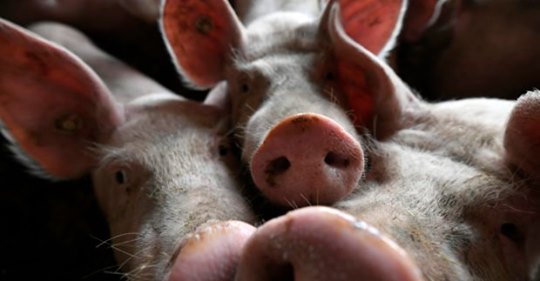ASF still spreading; 200,000 pigs culled

Despite intensified efforts to contain the spread of the African swine fever (ASF) virus, the Department of Agriculture (DA) reported that the hog-borne disease has continued spreading in several parts of Luzon, bringing the total number of outbreaks in the country to 130 and has resulted in the culling of nearly 200,000 pigs.
The DA submitted four follow-up reports to the World Organization for Animal Health this week after over two months of silence, wherein it was revealed that there have been 2,891 ASF cases recorded in over 300 barangays between August and December.From 52,850 hogs culled in November, the number has risen to 191,641 hogs—a 270-percent increase just after a month.
Agriculture Secretary William Dar earlier said that the number of ASF cases in the country had begun “tapering down” after it strengthened quarantine and safety measures, but data had shown otherwise.In the latest reports prepared by the Bureau of Animal Industry (BAI), it showed that the fatal disease is now present in more municipalities and cities in both northern and southern areas.
Badly hit were the provinces of Pampanga and Bulacan. The virus also reached new areas in Aurora, Cavite, Nueva Ecija and Tarlac.
The region of Central Luzon is the country’s major livestock hub, accounting for 18 percent of the sector’s total hog output. Bulacan, Tarlac and Pampanga are considered the top hog-producing provinces in the region.Additional ASF outbreaks
The reports also confirmed additional ASF outbreaks in Metro Manila, Caloocan, Quezon City and Metro Manila.
The BAI’s report has pointed to the illegal movement of animals, swill feeding and fomites as the main reason for the ASF spread.
Earlier this week, 25 tons of pork celery dumplings from Guangzhou, China, were seized by authorities in Manila, after they tested positive for ASF.In a statement, the Department of Finance urged the DA to “strictly enforce biosecurity measures and set up more stringent quarantine checkpoints, provide more disinfection facilities and intensify our antismuggling and meat inspection efforts.”
Authorities continue to employ the 1-7-10 protocol to prevent the further spread of ASF.This means killing off all hogs and disinfecting all areas within 1 kilometer of the disease’s ground zero, controlling the movement, shipment and sale of hogs within the 7-km zone and monitoring those within 10 km.
The DA estimated that the livestock industry incurs about P1 billion every month in opportunity losses because of the epidemic, but industry stakeholders said that factoring in the decline in farm-gate prices would bring the amount to P5 billion every month.
While not harmful to humans, the ASF virus is easily transmitted because it can stay alive for days on clothes and shoes, in processed meat, and in parasites such as ticks. The BAI, however, assured consumers that ASF would not pose health risks to humans.
Disclaimer: The comments uploaded on this site do not necessarily represent or reflect the views of management and owner of Cebudailynews. We reserve the right to exclude comments that we deem to be inconsistent with our editorial standards.
